The Bourbon County Sheriff’s Office can best be viewed on a computer.
They can be reached at (620) 223-2380.
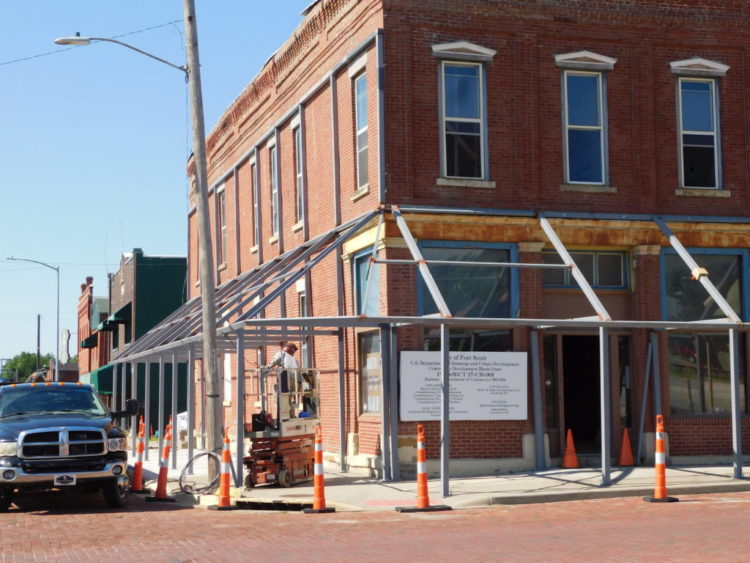
The building at the corner of Scott and Wall streets has seen better days.
But with the purchase of the property formerly known as the “The Spoiled Brat” building, there will be new activity. Spoiled Brat was the name of the beauty salon that was located there years ago.
Roy and Jody Hoener own the property now.
The Hoener’s envision this to be breathing new life into a previously condemned structure that sits at a gateway to Fort Scott.
The Hoener’s own The Hole In the Wall Liquor Store, currently located at 13 W. Oak.
The business has been in the family for three generations, Roy Hoener said.
“My grandpa, Roy Louderman, bought the business in 1985,” Roy said. “My mother, Connie Hoener, bought the one-half interest in 2005. In 2015 Jody and I took it over from my mom when she retired.”
But come October they are hoping to be moved to the new site at 124 E. Wall, Jody Hoener said.
“We are doing pretty good on the timeline,” Roy said.
Over the next month’s several local businesses will be helping the Hoeners transform the once blighted and deteriorating building into the store and in addition, apartments on the second floor.
The liquor store will be 24 by 84 foot in dimensions, Roy said, with the apartment space above having the same dimensions.
“We are trying for two apartments,” Roy said. “That will be down the road.”
Behind, to the south of the store, will be an event space, Roy said.
“It will be for wine tastings, etc.,” he said
Those businesses hired by the Hoeners are Hofer and Hofer and Associates Inc.-general contractor, Agricultural Engineering Associates-structural engineers overseeing the entire project, RII Concrete Construction LLC-steel work outside, Geiger Plumbing-plumbing, KTK Electric LLC-HVAC and new wiring and lights, Great Expectations LLC Restoration Company—inside floor joists, Murphy Roofing-roof, Kirby’s Cabinets-counter and display, Miles Woodworking-shelving, and Perry Cannon-interior painting.
Contact info for the public is Facebook: Hole in The Wall Liquor; or on the web: http://hole-in-the-wall-liquor.business.site/ or by phone: 620-215-0016.
Agenda
Bourbon County Commission Room
2nd Floor, County Courthouse
210 S. National Avenue
Fort Scott, KS 66701
Tuesdays starting at 9:00
Date: June 26, 2018
1st District-Lynne Oharah Minutes: Approved: ____________
2nd District-Jeff Fischer Corrected: _______________
3rd District-Nick Ruhl Adjourned at: _______________
County Clerk-Kendell Mason
9:00- 9:30 Jim Harris
9:30-9:45 Open Hay bids
10:00-10:15 Open Trash bids
10:30-10:45 Clint Anderson
11:00-11:20 Justin Meeks- Executive Session privileged in the attorney/client relationship
11:20-11:22 Justin Meeks- Walking trail
11:22-11:27 Justin Meeks- Update on NRP
11:27-11:32 Justin Meeks- Handbook
12:00-1:30 Commissioners gone to Lunch
1:30-1:45 SEKMH 2019 Budget
2:00-2:30 State Health Plan- Conference call
2:45-3:00 Mary Pemberton- KORA 224-9654
3:00-3:15 Will Wallis- 2019 Emergency Management Budget
Justifications for Executive Session:
Personnel matters of individual non-elected personnel
Consultation with an attorney for the body or agency which would be deemed privileged in the attorney-client relationship
Matters relating to employer-employee negotiations whether or not in consultation with the representative(s) of the body or agency
Confidential data relating to financial affairs or trade secrets of corporations, partnerships, trusts and individual proprietorships
Preliminary discussions relating to the acquisition of real property
Matters relating to the security of a public body or agency, public building or facility or the information system of a public body or agency, if the discussion of such matters at an open meeting would jeopardize the security of such public body, agency, building, facility or information system
Regular hours resume on June 28
The pharmacy at Mercy Fort Scott will close at 2 p.m. on Wednesday, June 27 for inventory. Regular hours will resume at 8:30 a.m. on Thursday, June 28.
“We want to make all our patients aware of the temporary change in hours on June 27 so they can plan ahead and not have any interruption in their medication,” said Jennifer Dunshee, RPh. “We thank our patients in advance for their cooperation during our annual inventory process.”
Shorty before the end of every fiscal year, the pharmacy staff takes inventory of drug and supplies.
Mercy’s fiscal year ends June 30.
Mercy, named one of the top five large U.S. health systems in 2017 by Truven, an IBM Watson Health company, serves millions annually. Mercy includes 44 acute care and specialty (heart, children’s, orthopedic and rehab) hospitals, more than 700 physician practices and outpatient facilities, 40,000 co-workers and more than 2,000 Mercy Clinic physicians in Arkansas, Kansas, Missouri, and Oklahoma. Mercy also has outreach ministries in Louisiana, Mississippi, and Texas.
Judith Ann Rodgers, age 74, a resident of Louisburg, KS, died Wednesday, June 20, 2018, at the Olathe Medical Center.
She was born June 14, 1944, in Ft. Scott, KS, the daughter of Julian and Leona Callahan Cochran. She graduated from Ft. Scott high school and Pittsburg State University with a teaching degree.
She moved to California and taught school for one year. There she met her husband to be and married Richard Rodgers on January 28, 1967. They moved back to Ft. Scott while Judy taught school in Pleasanton, KS, for four years. They then moved to Omaha, NE, for ten years. They then returned to Ft. Scott for five years before moving to Louisburg.
She began working for the Western Insurance Company in the bond department. After the change to American States Insurance, she started working in the legal department. This career continued through Safeco, then Liberty Mutual Insurance Companies until her retirement.
Judy was a Campfire Leader during her time in Ft. Scott. She was an avid reader and a wonderful cook, especially holiday sweets.
Survivors include her husband, Richard of the home; a daughter, Katie Schack and husband August, Minnesota; and two cousins, Pat and Tim Henry. She was preceded in death by her parents.
Graveside services will be held at 11:00 AM Thursday, June 28th, in the U. S. National Cemetery, Ft. Scott.
Memorials are suggested to Alzheimer’s Association and may be left in the care of the Cheney Witt Chapel, PO Box 347, 201 S. Main, Ft. Scott, KS 66701. Words of remembrance may be submitted to the online guestbook at cheneywitt.com.
Agenda
Bourbon County Commission Room
2nd Floor, County Courthouse
210 S. National Avenue
Fort Scott, KS 66701
Tuesdays starting at 9:00
1st District-Lynne Oharah Minutes: Approved: ____________
2nd District-Jeff Fischer Corrected: _______________
3rd District-Nick Ruhl Adjourned at: _______________
County Clerk-Kendell Mason
9:00- 9:15 George Collinge- Eagle Road project
9:45-10:00 Fence viewing decision between Cutler and Coyan
11: 00- 11:10 Justin Meeks- budget concern and possible action item with County Appraisers office
11:10-11:25 Justin Meeks- Executive Session attorney/client relationship
12:00- 1:30 Commissioners gone to Lunch
1:30- 1:50 Justin Meeks- meeting about old jail/ Data Center
1:50-2:20 Justin Meeks- update on NRP/Meeting times/Resolution
2:30 Employee Handbook
Justifications for Executive Session:
Personnel matters of individual non-elected personnel
Consultation with an attorney for the body or agency which would be deemed privileged in the attorney-client relationship
Matters relating to employer-employee negotiations whether or not in consultation with the representative(s) of the body or agency
Confidential data relating to financial affairs or trade secrets of corporations, partnerships, trusts and individual proprietorships
Preliminary discussions relating to the acquisition of real property
Matters relating to the security of a public body or agency, public building or facility or the information system of a public body or agency, if the discussion of such matters at an open meeting would jeopardize the security of such public body, agency, building, facility or information system
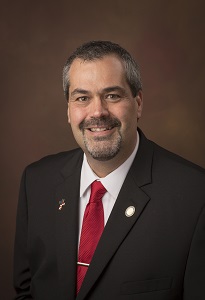
The United State Supreme Court ruled recently ruled that states can now collect online sales tax from out-of-state vendors, according to a press release from Richard Hilderbrand (R-Galena).
“Before the Kansas Legislature moves forward, we must look closely to see how this will impact hardworking Kansans,” Hilderbrand said.
“The Supreme Court opinion on online sales taxes would work like this,” he said. ” Any taxing entity in the U.S; can now collect sales tax from any business that sells online to a customer that resides in their taxing jurisdiction.”
“This will put a huge burden on small businesses that currently sell online,” Hilderbrand said. “They will now have to answer to thousands of taxing entities. They will have to know what each sales tax rate is, and will also be subject to audits from those taxing entities.”
“Because this is an interstate commerce issue, it will be up to our U.S. Congress, and U.S. Senate to address this situation,” Hilderbrand said. “The state will have to decide on whether or not to start collecting taxes on out of state businesses that sell online to Kansas citizens. If the state decides to start collecting that sales tax, it will be another tax increase on Kansas citizens.”
“We cannot place another tax hike onto Kansas taxpayers for the third year in a row. An implementation of online sales tax must be coupled with a decrease in the overall sales tax rate. It is an embarrassment that Kansans pay some of the highest sales taxes in the Midwest. Our first priority should be to ease the financial burden on families by making Kansas a more affordable state,” according to the press release.”
“The sales tax rate must be lowered so Kansans can keep more of their money in their pockets instead of being forced to send more and more money to Topeka,” Hilderbrand said.
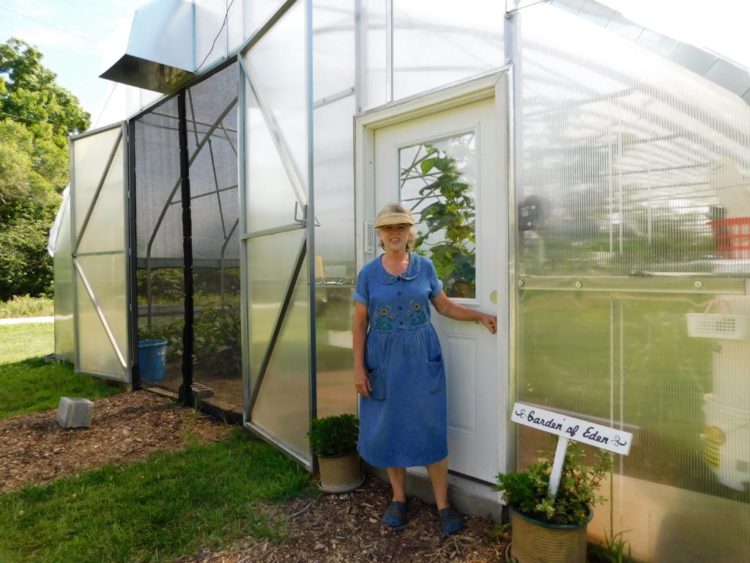
Following a lifelong dream to experiment with gardening in a controlled environment, Vickie Shead, rural Garland, applied for and received funding to build what is called a high tunnel or hoop house on the family farm.
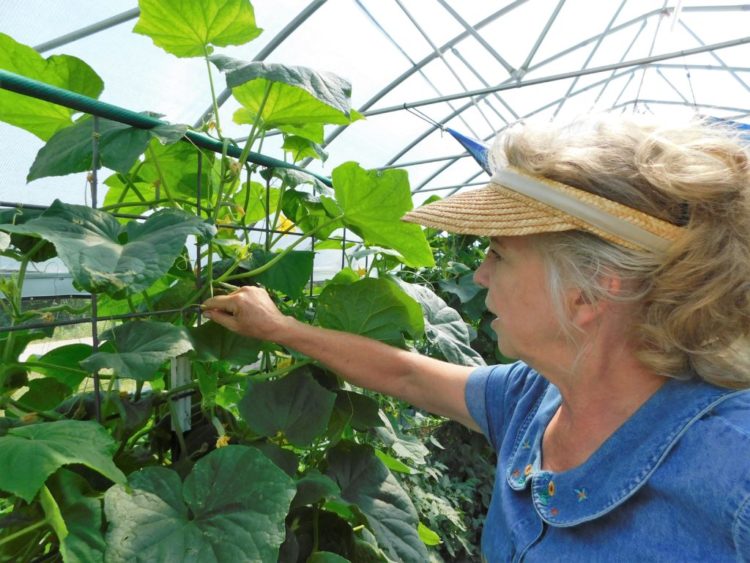
Since getting it up and going this year, there has been a learning curve in gardening.
“I thought I knew about gardening,’ she said. “But I have learned a lot.”
“We realize that this year is a huge learning curve as we have everything to learn about this new way of growing quality, organic produce. We are very thankful for the grant helping us get started in this adventure in gardening,” Vickie said.
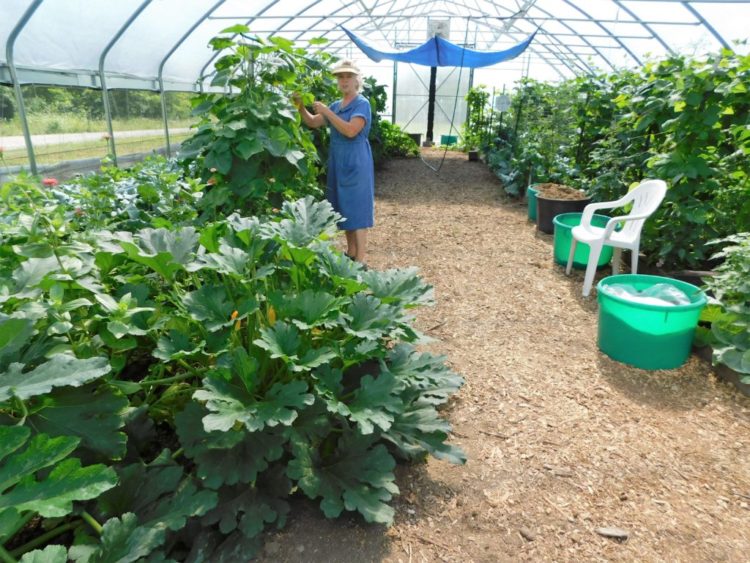
The addition of mesh siding to keep out pests has cut back on much of the insects that normally feed on garden produce, but she has help to work on the insects that do manage to get in.
Her grandchildren.
They help by handpicking insects and insect eggs and also weeding in the high tunnel garden bed.
She also uses low-technology help such as sticky yellow pads, much like flycatchers of old, to aid in getting rid of insects.
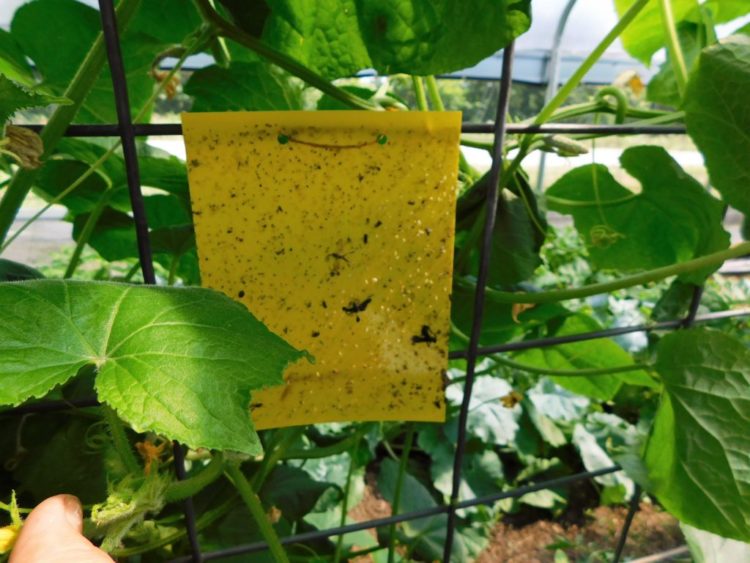
And additionally, they added insect cloth on the sides of the hoop house to lessen insect invasion.
“I needed a controlled environment from the weather and insects,” she said.
The Sheads use no chemicals on their gardens.
The following is an interview with Vickie Shead.
“High Tunnel System Initiative, commonly called a ‘hoop house,’ is an increasingly popular conservation practice for farmers, and is available with financial assistance through the Environmental Quality Incentives Program (EQIP) and can be applied for through the NRCS (Natural Resource Conservation Service).”
“The seasonal high tunnel system for crops does not include greenhouses or low tunnel systems covering single crop rows.”
“The goal is to assist producers to extend the growing season for high-value crops in an environmentally safe manner.”
“NRCS hopes to encourage growers with high tunnels which can aid in improving plant quality, soil quality, reduce nutrient and pesticide transport, improve air quality through reduced transportation inputs, and reduce energy use through local consumption. It is to be used on cropland where climatic conditions due to heat, cold, severe weather may interfere with the producing of vegetables, fruits, and other consumable crops.”
“The grant allows the producer to choose the company, the size, the style, and method of installation for their high tunnel kit.”
“When we applied, we received a grant for $6,732 for our high tunnel system.However, in order to adhere to the Shead-Spread Farm’s organic standards and future plans, we added to the grant with our own money so that we could comply to organic certification we wish to obtain in the near future. The additions included: metal framework instead of treated lumber, roll down sides and fans to increase ventiation, end walls with big doors, and shade cloth for temperature control and insect cloth (50% shade cloth) to lessen insect invasion. These additions have proven to make a wonderful growing environment that we fondly call ‘The Garden of Eden’.”
“The grant was received in the fall of 2016. The 60 x 30 feet Gothic Style High Tunnel wasn’t erected until July of 2017, so this is the Shead’s first growing season. We classify this as the learning season!
It is an on-going project far from finished.
We have yet to add permanent plumbing, electrical wiring, and rainwater irrigation system, all of which are awaiting financial resources.”
“For many years, the Shead-Spread Farm has provided fresh, organic, nutrient-packed produce from our gardens and orchards.These fruits and vegetables have fed four families (their children and grandchildren) and are used either fresh, canned, frozen, or dried. We hope to expand the growing season of our organic crops in order to sell our quality fruits and vegetables, along with our dried and powdered products through the local Fort Scott Farmer’s Market, at the farm, and through the internet. “
“However, we found that because Kansas abounds in insects, growing organic vegetables and fruits is tedious and time-consuming and next to impossible. We needed a more controlled environment for improving plant quality and climatic conditions.”
“The NRCS High Tunnel Initiative was just what we needed because it helps producers raise crops in a more controlled environment, which reduces insects, protects the plants from wind and storm damage, and lengthens the growing season. “
” I am the instigator of the project with my husband, Larry, as the main support and muscles. However, other family members also help, including many of our 17 grandchildren, who are often by my side as I work.”
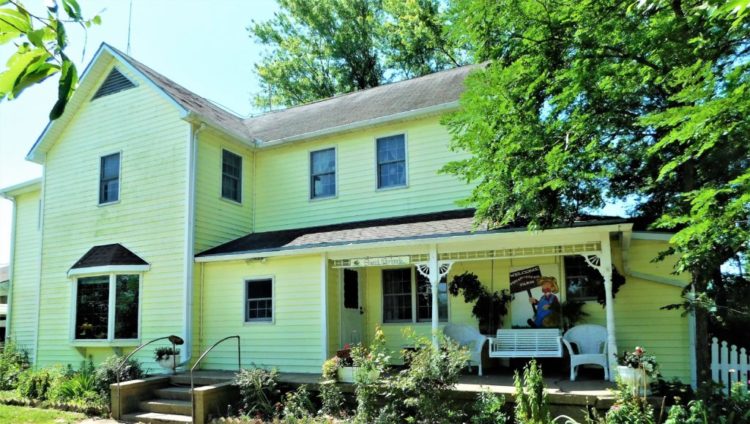

Summer Cooking Classes by K-State Research and Extension will begin on June 26 and continue through June 28 at the First United Methodist Church basement, in Fort Scott. The classes will include students that have completed 2nd-5th graders and are full with 24 enrolled students. The classes will begin at 9 a.m. and end at 11:30 a.m.
For more information
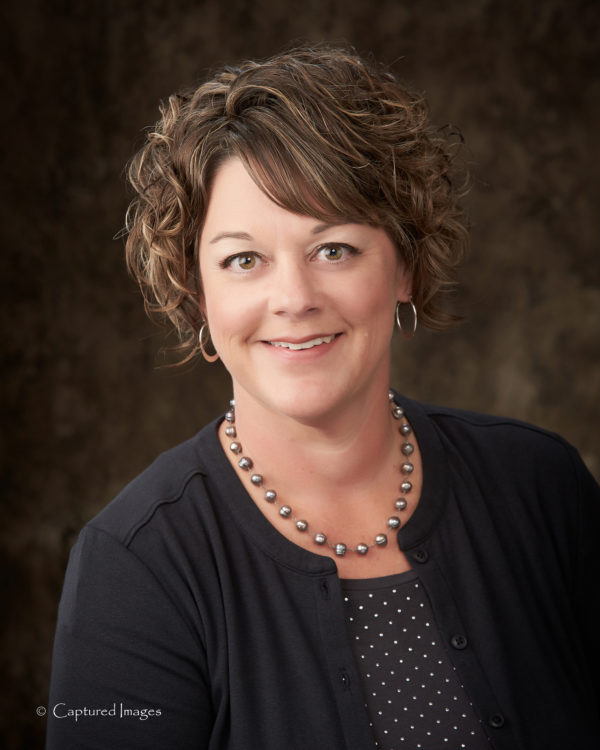
Nineteen years – that’s how long I have been a K-State Extension agent and it has been a very good career for me! I thoroughly enjoy visiting with people and helping whenever I can.
When I began as an agent, I was amazed by the fact that not everyone knew what the Extension service was. I always heard the phrase “Extension is the best-kept secret” and I thought to myself….I’m going to change that!
Unfortunately, nineteen years later, I still frequently visit with folks that have absolutely no idea of the services the Extension office can provide. So many services in fact, it’s too numerous to list. But one of those that I want to draw your attention to is our horticulture services.
Anyone that has a lawn or landscape can benefit from the local Extension office. The weeds you try to keep from growing in your lawn, or the tree that has holes in the trunk, or the spots on your tomato leaves are all areas the Extension office can help you.
We offer you that one-on-one personal service that you cannot get from Google.
From the Extension office, you can obtain information on trees, turf, flowers, insects, gardens, soils and other related topics specific to Kansas. The key point here is – specific to KANSAS.
It is so easy to just turn to the internet to find information. However, many times the information you find is from another state and it is not relevant to our area. Or worse, it is inaccurate.
The Extension office can assist you with any specific plant or insect problem you may encounter – free of charge. Home visits are also available.
There are never any dumb questions when you call the Extension office. My job is to help the public with whatever question or issue they may have and to try to educate them. I may not always have the answer they are looking for immediately, but 99% of the time I can find an answer. We also have access to K-State specialists and laboratory diagnostic services.
This summer, there are three demonstration gardens in the Southwind District for people to view and take notes of plant performance.
Pepper plants are being trialed at the Elm Creek Community Garden in Iola, tomato plants at the Cherry Street Youth Center and squash at the community garden in Fort Scott. The plots are labeled so feel free to stop by and take a look.
I am most excited about the tomato trials at Cherry Street. This is a great learning opportunity for the youth! They are working under the direction of Denise Hastings who is an Extension Master Gardener. The youth will record data and make careful observations of the varieties. At the end of the season, results will be reported to K-State and combined with other data from other trials across the state. All of this data will be used to help update the list of K-State recommended vegetable cultivars.
During the growing season, I am in the Erie office Monday, Wednesday, and Friday; Iola on Tuesday and Fort Scott on Thursday.
However, you can always reach me by e-mailing [email protected] or call 620-244-3826.
K-State Research and Extension is an equal opportunity provider and employer.